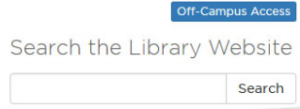Learning new technology skills and workflows can be very challenging, especially when strapped for time. Online resources like Lynda.com and edX help people meet these challenges through self-paced video tutorials and projects. Join HS/HSL’s Technology Brown Bag series on August 31st from 12-12:45 pm in room LL05, to learn how to navigate the best of these online resources with regard to:
– genomics
– statistical analysis
– data visualization
– design
– computer programming




